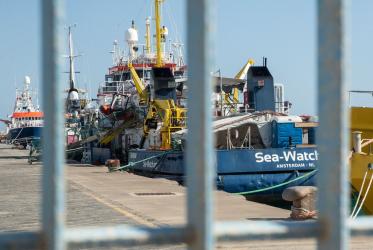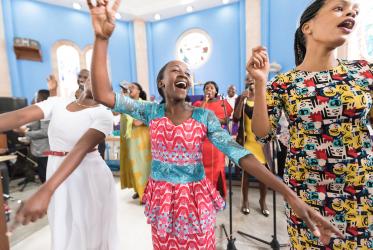Displaying 121 - 140 of 505
How will the Arusha Call change the world?
20 May 2019
Comment l’Appel d’Arusha changera-t-il le monde?
20 May 2019
‘European humanitarian corridor’ proposed
02 May 2019
A faith-based, holistic approach to HIV and AIDS-care
13 March 2019
Faith and HIV treatment go hand in hand
06 March 2019
Turning mercy and compassion into action
04 March 2019
On the journey to HIV – bridging gaps, debunking myths
21 February 2019








